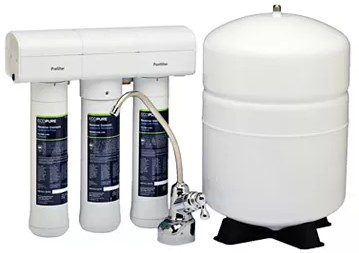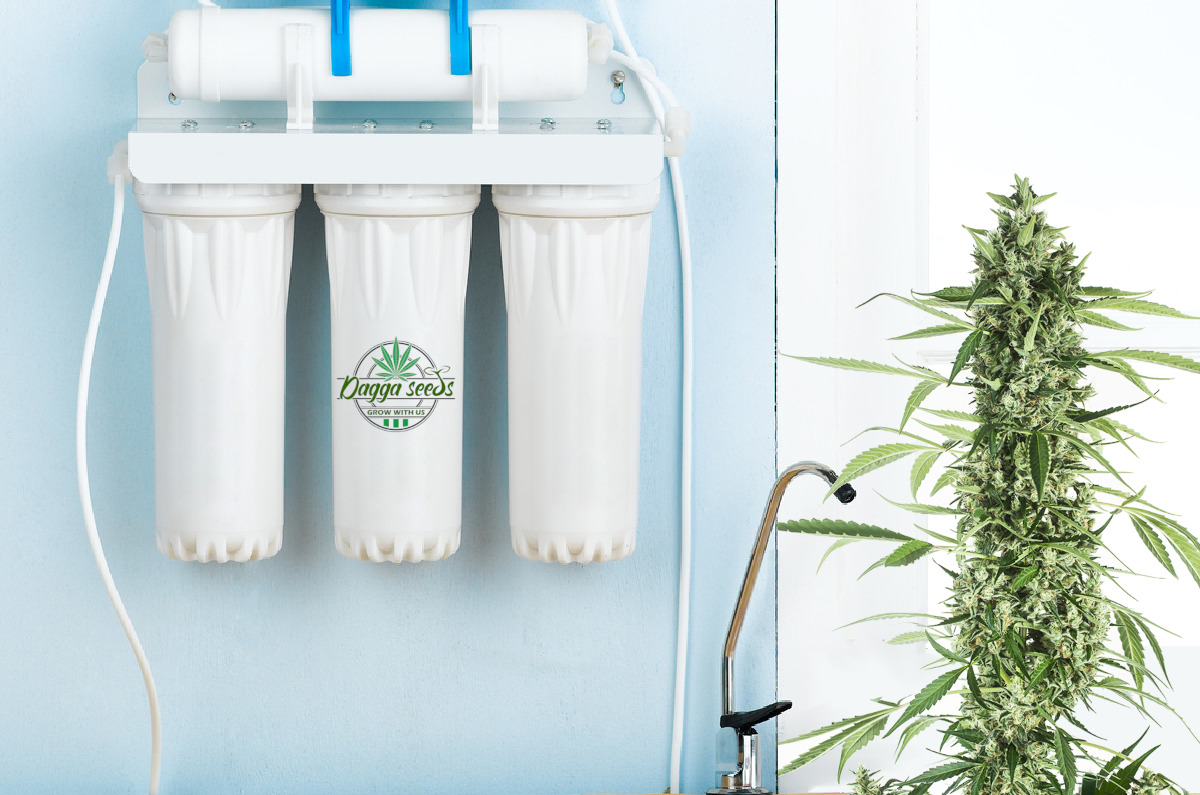A reverse osmosis system is a very important item in hydroponic growing and can only do good to your plants. Here is everything you wanted to know about reverse osmosis to help weed plants.
In recent years, more and more hydroponics growers are choosing to install a reverse osmosis system in their homes. This is because of the relatively poor quality of water in North America. The water in Canada contains chlorine and other harmful substances at the molecular level such as metals, organic materials, industrial effluents, pesticides, bacteria, germs, salts, chemicals and more. These substances can damage our crops and damage the roots of our weed plants. The solution to this is to use a reverse osmosis system.
What is reverse osmosis?
Reverse osmosis is a system that allows you to purify the water and get distilled, high-quality and clean water. In 1949, at the University of California, Los Angeles, USA, the possibility of desalinating seawater through the osmosis process was investigated for the first time in history.
In the process of reverse osmosis, a solution is transferred through a membrane. The membrane is a kind of layer that has a microscopic thickness of a polymer that undergoes compression. Usually, only water can pass through the membrane. The reverse osmosis facility consists of two cells. Water is poured into one cell with a high salt concentration. The other cell is poured without dissolved water, in which the salt concentration is zero.
By applying osmotic pressure, the water with the high dissolved concentration becomes the water with the low dissolved concentration. The filtration that the water passes through the membrane allows the passage of only clean and clear water without chemicals.
What is the purpose of reverse osmosis?

A reverse osmosis system is designed, among other things, for purifying domestic water used for drinking and for water facilities installed in offices and public institutions.
In addition, since 1965 the system has been used to desalinate seawater and brackish water for agricultural purposes. The first commercial facility used to desalinate seawater through a reverse osmosis process was established in the town of KoLinga, California. Here in Israel, too, the reverse osmosis process is being used to desalinate seawater. For example, in the Eilat area, drinking water is extracted from saltwater through reverse osmosis.
Food companies also use reverse osmosis systems. The food industries utilize the process to create various concentrates like fruit juices and maple syrup. In addition, reverse osmosis makes it possible to increase the concentration of wine, reduce the concentration of alcohol in wine and filter various substances from the wine.
The distilled water produced in the reverse osmosis process is also used for car wash facilities. Thanks to the purified water that contains a low amount of minerals, the amount of water left on the vehicle is reduced and thus the drying facilities enjoy a reduced load.
Along with all of these uses, a reverse osmosis system is a very important facility for hydroponic cannabis crops.
How does Reverse Osmosis Help Weed Plants?
The various salts and substances present in tap water can, as mentioned, harm plants. When fertilizer is added to the tap water, which also contains salts and metals, the salinity level of the plants can get out of balance, damage the growth of the plant and even cause it to burn.
By using a reverse osmosis system, it is possible to obtain distilled and clean irrigation water without chlorine, salts and metals. The same problematic metals removed from the water can be replaced with a fertilizer rich in good metals that will allow the plant to grow properly and get an ideal irrigation mixture. You can measure the concentration of fertilizer in the water using an EC meter and thus check whether the irrigation solution contains good amounts of fertilizers that will benefit the plant and not harm it.
Another advantage of a reverse osmosis apparatus is that the system reduces the risk of the formation of blockages and various malfunctions in the irrigation pumps, and prolongs the life of the pumps and pipes.


I had some doubts until reading the article.
I use natures reverse osmosis, ie. rainwater